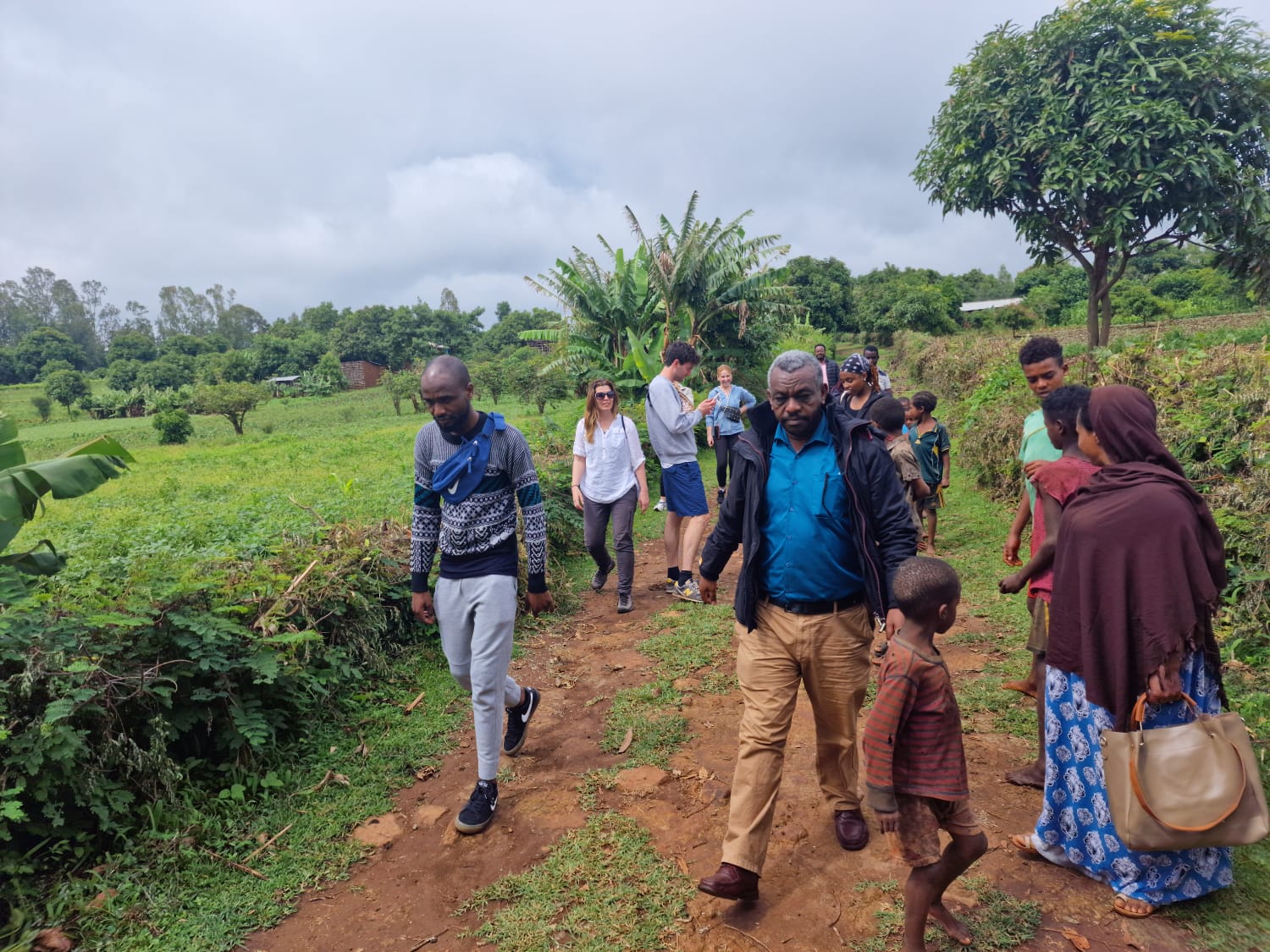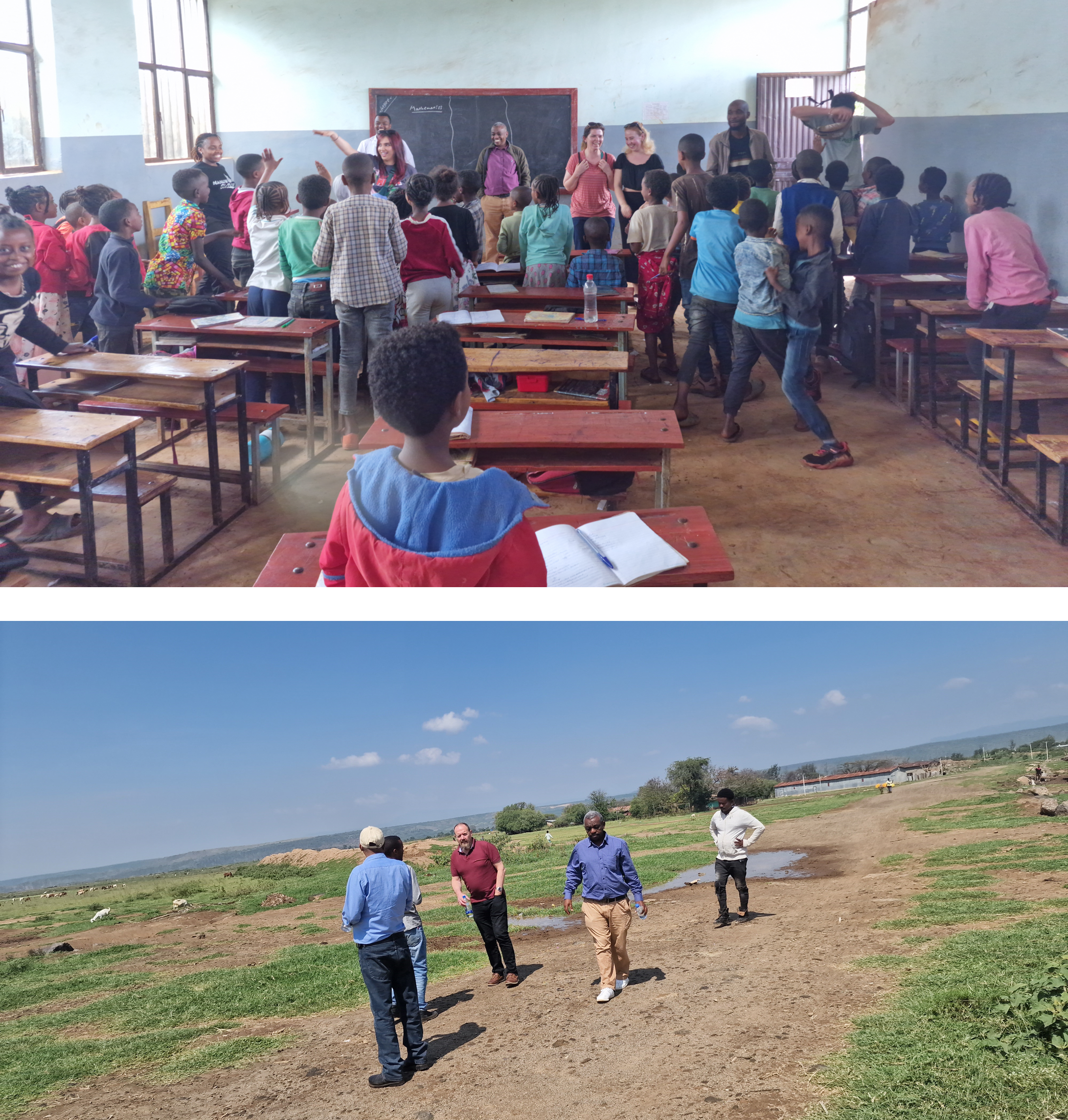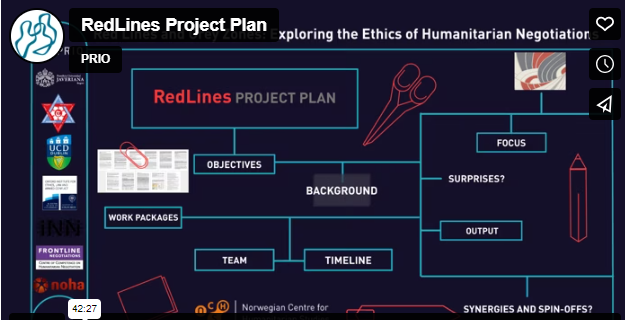
Research
Find out more about the Centre's ongoing and past research projects.

Building Resilience Through Education 2 (BRTE2)
This project aims to support the socio-economic transformation of Wolaita. It is Phase 2 of a long-term programme that engages partners from academia, the private, and the NGO sectors to find innovative ways to strengthen the resilience of communities in Wolaita Zone, Southern Ethiopia.
The rationale for BRTE2 is from the end-of-project seminar of BRTE I. The strong relationships and platform established during the Horizon 2020 BRTE project (2017-2022) gave impetus to engage in new initiatives to sustain and enhance the BRTE philosophy, concepts, and operations.
The primary stakeholders guiding this project include: University College Dublin (Ireland), Wolaita Sodo University (Ethiopia), South East Technological University (Ireland), Concern Worldwide (Ireland), Wolaita Development Association (Ethiopia), and KPMG Future Analytics (Ireland) are the primary stakeholders of BRTE2.
The timeframe for this phase is five-years (2023-2027).


Erasmus+ International Credit Mobility
This project aims to share education modules with our partner institutions that address institutional societal diversities to enhance the appropriateness and relevance of humanitarian education in disparate national contexts.
The rationale for this project stems from the Localisation Agenda. It emphasises the necessity to recognise, respect and strengthen local capacities as a priority for the international aid community, but regional HEI capacity to deliver instruction in this area is nascent. Engaging senior academics from two of sub-Saharan Africa’s top-ranked universities to tailor modules and their delivery to their different societal and national contexts will ensure it best meets the needs of their staff and student cohorts while enhancing its global content for delivery at UCD.
The primary stakeholders include: Centre for Humanitarian Action, University College Dublin; College of Development Studies, Addis Ababa University, Ethiopia; and Centre for Social Policy Studies, University of Ghana, Legon, Accra.
This is a mobility project for HEI staff and doctoral students to visit partner institutions to learn new ways of working and share knowledge and skills between Ireland, Ghana, and Ethiopia.
The timeframe for this project is from 1 August 2022 to 31 July 2025


Red Lines and Grey Zones: Exploring the Ethics of Humanitarian Negotiations
This project aims to map out the ethical problems of humanitarian negotiations and cross-examines them through a set of case studies and theoretical perspectives. The cases are from Syria, Bangladesh, Colombia, Nepal, the Mediterranean and the UN Security Council. The project team will also develop online university courses at MA and PhD levels and professional trainings, and will interact with policymakers, practitioners, and civil society through a range of online and offline activities with a global reach.
The rationale for the project is rooted in the notion that humanitarian negotiations and mediations are filled with ethical dilemmas like cooperating with war criminals and repressive regimes, favouring certain social and political groups or putting the lives of local staff at risk in order to save lives and alleviate suffering. humanitarian actors face hard ethical choices on a daily basis around.
The project brings together a rich intersectoral stakeholder mix. It is hosted by Peace Research Institute Oslo in association with the Norwegian Centre for Humanitarian Studies. It includes research partners from Pontificia Universidad Javeriana, Bogotá; Tribhuvan University, Kathmandu; University College Dublin; Oxford Institute for Ethics, Law and Armed Conflict, University of Oxford; and Inland Norway University. The Centre of Competence on Humanitarian Negotiation - a collaboration between the ICRC, UNHCR, WFP, MSF and the Centre for Humanitarian Dialogue – are actively involved in consultation and training activities. University courses will be offered in collaboration with Research School on Peace and Conflict and the Joint Master's Degree of the Network on Humanitarian Action (NOHA).
The project began in January 2022 and is scheduled to end in September 2025.
Project website: (opens in a new window)https://www.prio.org/projects/1938
